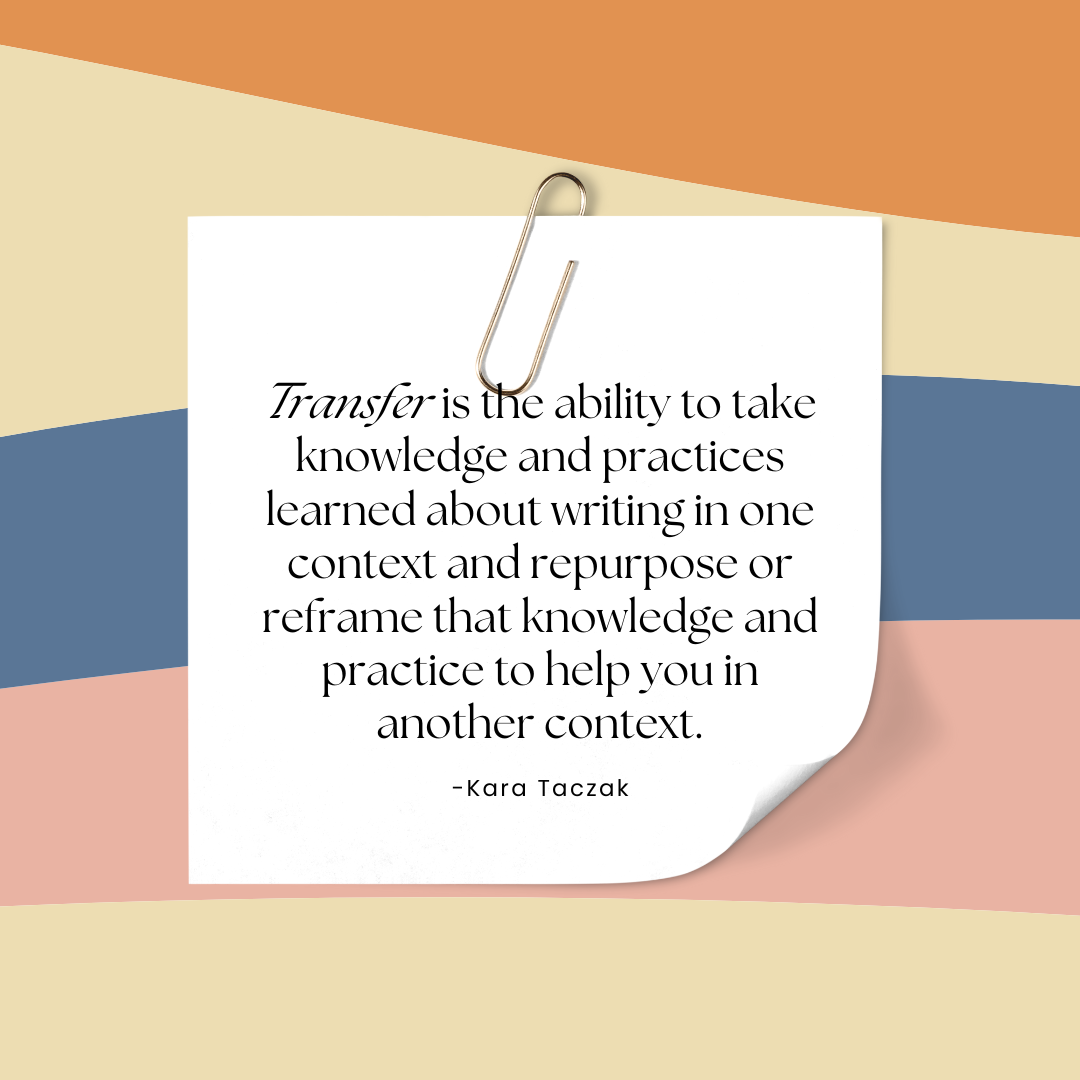Reflection, Revision, and Transfer
Section Overview
The purpose of a writing class – or any class for that matter – is to teach content and skills that you can use in other contexts, that you can transfer for further use. However, we’ve learned through extensive research that this process of transfer is not automatic. You might learn something in the context of a class, but you won’t necessarily be able to use that content or those skills unless you purposefully reflect on what you’ve learned and actively engage in the process of transfer. To do this, we ask you to use metacognition, literally thinking about your thinking. Metacognition is important to use throughout the writing process – most processes really! – but it is particularly important during the revision process. Particularly if you are revising something you wrote at the beginning of the semester, you may think about your composition, the act of writing, and of yourself differently than you did just a couple of months ago. You’ll have lots of opportunities during your class to be metacognitive – to consider who you are as a writer, what experiences have shaped the choices you make in your composition, and how you want to develop your writing skills for future use. The thing about reflection, revision, and metacognition is that these processes can feel sort of strange if you haven’t been asked to do them in the context of a class before, or you may feel like you have to perform a certain kind of reflection, as Sandra Giles writes about in her beautiful essay, “Reflection Writing and the Revision Process: What Were You Thinking?” The key is to remember that there isn’t a “correct” reflection on writing, and revision may take your writing in a new direction. Be as engaged and curious as you can about your writing and that of the writing and writers around you. This more than anything will help you be a more effective, reflective writer.
 The first two chapters in this section address revision:
The first two chapters in this section address revision:
- “Grammar, Rhetoric, and Style” by Craig Hulst
- “Reflective Writing and the Revision Process: What Were You Thinking?” by Sandra L. Giles
The last two chapters address transfer, arguably the primary purpose of education. These chapters consider how to get the most out of your classes as well as some of the fascinating research on transfer:
- “Writing Knowledge Transfers Easily” by Ellen C. Carillo
- “The Importance of Transfer in Your First Year Writing Course” by Kara Taczak
the act of bringing knowledge or skills from one context to another; the goal of a first-year writing course is to transfer the writing skills developed in the class to other writing situations
awareness and understanding of one's own thought processes
Is the thorough process of rethinking and re-seeing your work. Revision is distinct from editing and proofreading, which usually just address grammatical and syntactical changes. Revision instead may include reorganization, finding new evidence, or similar substantive changes to a composition
the action or process of thinking carefully or deeply about a particular subject, typically involving influence from one's past life and experiences; contemplation, deep or serious thought or consideration; the process or faculty by which the mind observes and examines its own experiences and emotions; intelligent self-awareness, introspection, metacognition

